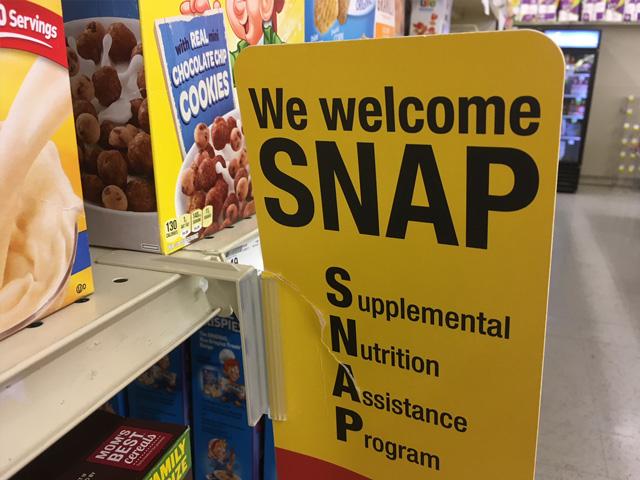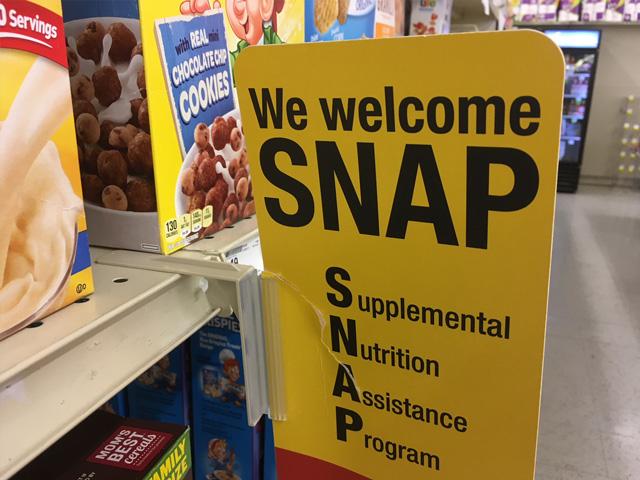Ag Policy Blog
Senate Parliamentarian Nixes Plan to Shift Some SNAP Benefit Costs to States
Senate Republicans will have to find another way to curb spending on the Supplemental Nutrition Assistance Program (SNAP) following a decision handed down Friday by the Senate parliamentarian.
SNAP, formerly known as food stamps, is the country's largest nutrition program and generally SNAP policies are reworked in the farm bill.
Shifting a percentage of SNAP spending to states was a major cost-savings move under the "One Big Beautiful Bill," – the budget reconciliation plan. Those cost savings were expected to help offset more than $67 billion in proposed spending for commodity programs and crop insurance expansion in the budget reconciliation package.
Both the House and Senate propose that states pay for a percentage of SNAP benefits, based on their payment error rate as determined by USDA. The Senate plan was scaled back compared to the House, but still would have required states with error rates above 6% to pay 5% of SNAP benefits; states with error rates greater than 8% would pay 10% of SNAP benefits; and states with error rates above 10% would pay 15% shares.
The House plan proposed states would pay 5% of SNAP benefits if their error rate was 6% or less. Under the House plan, states could pay as much as 25% of benefits depending on their error rates. The Congressional Budget Office pegged the House's plan as saving the federal government $128 billion over ten years.
The Senate savings were not scored by the CBO, but the shift of funds to states were still projected to save tens of billions of dollars.
SNAP payment error rates by states range from a low of 3.4% in Idaho to over 60% in Alaska. The national error rate average is 11.7%.
The parliamentarian also rules that a provision removing SNAP eligibility for immigrants who are not citizens or permanent lawful residents would also require 60 votes. That provision was projected to cut $3.9 billion.
Another provision that would require 60 votes, the parliamentarian rules, would suspend permanent price support authority to 2031. This is known as the "parity" provision that often forecasts significantly higher price supports for farmers in certain crops or livestock if Congress is unable to create a new farm bill.
P[L1] D[0x0] M[300x250] OOP[F] ADUNIT[] T[]
In a statement on Saturday, Senate Agriculture Committee Chairman John Boozman, R-Ark., said senators are reviewing options to find other savings in SNAP.
"To rein in federal spending and protect taxpayer dollars the committee is pursuing meaningful reforms to the Supplemental Nutrition Assistance Program (SNAP) to improve efficiency, accountability and integrity," Boozman said. "We are continuing to examine options that comply with Senate rules to achieve savings through budget reconciliation to ensure SNAP serves those who truly need it while being responsible stewards of taxpayer dollars."
Sen. Amy Klobuchar, D-Minn., the committee's ranking member said the parliamentarian's decisions should force Republicans to work with Democrats on a bipartisan farm bill rather than pushing for nutrition cuts in a reconciliation package.
"The Parliamentarian has made clear that Senate Republicans cannot use their partisan budget to shift major nutrition assistance costs to the states that would have inevitably led to major cuts," Klobuchar said. "While Republicans' proposed cuts to SNAP will still be devastating to families, farmers, and independent grocers across the country, we will keep fighting to protect families in need. Instead of a rushed partisan process, Republicans should work with us to lower costs for Americans and pass a bipartisan Farm Bill that works for all farmers and rural America."
Also see, "One Big Beautiful Bill Could Shutter More Rural Hospitals Without Some Fix,"
"Senate Ag Reconciliation Bill Offers Farmers Better Options for 2025 Programs," https://www.dtnpf.com/…
Chris Clayton can be reached at Chris.Clayton@dtn.com
Follow him on social platform X @ChrisClaytonDTN
(c) Copyright 2025 DTN, LLC. All rights reserved.






Comments
To comment, please Log In or Join our Community .